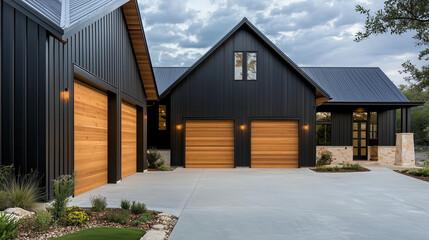Plumbers Plano are often regarded as problem-solvers for household leaks and clogged drains, but their role extends far beyond basic repairs. They are highly skilled professionals who design, install, and maintain complex systems that regulate water supply, waste removal, and even heating and cooling in residential, commercial, and industrial settings.
Their work forms the foundation of modern infrastructure, ensuring that clean water is delivered efficiently and waste is safely removed. Plumbing is not merely about fixing issues as they arise; it involves strategic planning, technical knowledge, and the ability to adapt to changing technologies and environmental standards.
The importance of plumbing systems can be traced back to ancient civilizations where early forms of drainage and water supply were created using primitive materials. Over centuries, plumbing has evolved into a highly specialized field requiring advanced knowledge of fluid dynamics, material science, and construction techniques. Plumbers today are responsible for the seamless operation of water distribution networks, sanitation systems, and even gas lines. Their work directly impacts public health, environmental sustainability, and the overall quality of life. Without effective plumbing systems, modern cities and buildings would struggle to function.
One of the core responsibilities of plumbers is the installation and maintenance of water supply systems. This involves designing pipe networks that can withstand varying levels of water pressure while maintaining the integrity of the water supply. Plumbers must carefully select materials that resist corrosion and pressure damage while ensuring that the system complies with industry standards. The installation process requires precise calculations and expert craftsmanship to prevent leaks and maintain consistent water pressure throughout the system. Plumbers also install backflow prevention devices to protect drinking water from contamination, ensuring that wastewater does not mix with the clean water supply.
Waste removal is another critical aspect of plumbing. Plumbers design and install drainage systems that efficiently carry wastewater away from buildings and into sewer or septic systems. This requires a thorough understanding of gravity flow, pipe sizing, and venting to prevent blockages and odors. When a blockage or leak occurs, plumbers use advanced diagnostic tools such as camera inspections and pressure tests to locate the problem and implement targeted repairs. Drain cleaning techniques, including hydrojetting and augering, are employed to remove obstructions and restore proper flow. Effective waste removal protects not only the integrity of a building but also the health of its occupants by preventing exposure to harmful bacteria and gases.
Heating and cooling systems often fall within the domain of plumbers. Radiant floor heating, hot water circulation, and geothermal systems rely on the expertise of plumbers to ensure proper installation and operation. These systems require a deep understanding of heat transfer, water flow rates, and pressure balancing. Plumbers install and maintain the pipes, pumps, and valves that regulate heating and cooling systems, ensuring energy efficiency and consistent performance. In homes and commercial buildings, proper temperature control relies on the seamless integration of plumbing with HVAC systems, making the role of plumbers essential in creating comfortable indoor environments.
Gas line installation and maintenance represent a specialized area of plumbing that requires additional training and certification. Plumbers install and repair gas lines for heating, cooking, and industrial applications. This involves working with pressurized systems and ensuring that gas lines are properly sealed to prevent leaks and potential hazards. Plumbers conduct pressure tests, install safety valves, and perform regular inspections to maintain the integrity of gas systems. Their ability to work with both water and gas systems highlights the technical versatility required in the plumbing profession.
The emergence of smart plumbing technology has introduced new opportunities and challenges for plumbers. Smart leak detectors, automated shut-off valves, and water usage monitors allow property owners to manage their plumbing systems remotely. Plumbers are now tasked with installing and programming these systems, ensuring that they are integrated with existing plumbing networks. This requires a working knowledge of digital controls, sensor technology, and wireless connectivity. Smart plumbing systems provide real-time data on water consumption and system performance, enabling plumbers to identify inefficiencies and recommend improvements.
Plumbing emergencies demand quick thinking and problem-solving skills. Burst pipes, overflowing drains, and sewer backups can cause significant property damage if not addressed immediately. Emergency plumbers are trained to assess the situation, identify the source of the problem, and implement effective repairs under pressure. This may involve shutting off water supplies, replacing damaged pipes, and restoring proper drainage. Plumbers often work in challenging environments, such as flooded basements or confined crawl spaces, where quick decision-making and technical expertise are critical. Their ability to manage high-stress situations sets them apart as skilled professionals.
Water conservation has become a significant focus in modern plumbing. Plumbers are at the forefront of implementing water-saving technologies, including low-flow fixtures, dual-flush toilets, and greywater recycling systems. They advise property owners on how to reduce water consumption and improve system efficiency. Rainwater harvesting systems, which collect and store rainwater for non-potable uses, are designed and installed by plumbers to reduce dependence on municipal water supplies. This shift toward sustainable plumbing reflects the growing awareness of environmental responsibility and the need to conserve natural resources.
Training and certification requirements for plumbers are rigorous, reflecting the complexity of the trade. Apprenticeship programs combine classroom instruction with hands-on training, allowing plumbers to develop technical skills and industry knowledge. Certification exams test a plumber’s understanding of plumbing codes, safety regulations, and best practices. Continuing education is essential for plumbers to stay current with new materials, technologies, and environmental standards. Specialized training in areas such as medical gas systems, green plumbing, and backflow prevention allows plumbers to expand their expertise and provide a broader range of services.
Plumbing in commercial and industrial settings presents unique challenges. Large-scale facilities, such as hospitals, hotels, and manufacturing plants, require complex plumbing networks that can handle high volumes of water and waste. Plumbers working in these environments must design systems that accommodate peak demand, prevent cross-contamination, and comply with stringent health and safety regulations. This may involve installing industrial-grade pipes, pumps, and valves that can withstand heavy usage. Maintenance work in commercial settings often requires coordinating with other trades, such as electricians and HVAC technicians, to ensure that plumbing systems integrate seamlessly with other building systems.
Public health and safety are directly linked to the work of plumbers. Proper sanitation and clean water delivery are essential in preventing the spread of disease and maintaining hygienic living conditions. Plumbers install and maintain water filtration systems, chlorination units, and pressure regulators to safeguard water quality. They also address issues such as lead pipe replacement and cross-connection control to prevent contamination. During infrastructure failures or natural disasters, plumbers are called upon to restore water service and repair damaged pipelines, ensuring that communities have access to safe drinking water.
Innovations in plumbing materials have enhanced system durability and performance. Traditional materials like copper and galvanized steel have been supplemented by modern options such as cross-linked polyethylene (PEX) and chlorinated polyvinyl chloride (CPVC). These materials offer increased flexibility, corrosion resistance, and ease of installation. PEX tubing, for example, can be routed through tight spaces without the need for joints or fittings, reducing the risk of leaks. CPVC pipes are resistant to high temperatures and chemical exposure, making them ideal for hot water systems. The selection of materials depends on factors such as water quality, pressure requirements, and budget constraints.
Plumbers are also involved in specialized fields such as fire sprinkler systems, medical gas installations, and water treatment facilities. Fire sprinkler systems require precise calibration to ensure adequate water flow and pressure in the event of a fire. Medical gas installations in hospitals and healthcare facilities must meet strict safety standards to protect patient health. Plumbers working in water treatment facilities are responsible for installing and maintaining the equipment that purifies drinking water and processes wastewater. These specialized areas require advanced technical knowledge and a thorough understanding of industry regulations.
The future of plumbing is shaped by evolving technology and environmental standards. Smart water meters, automated leak detection, and water-efficient fixtures are becoming standard in residential and commercial construction. Plumbers are adapting to these changes by gaining expertise in digital controls and sensor technology. The growing focus on sustainability and resource conservation is driving demand for plumbers who can design and install green plumbing systems. The profession offers diverse career opportunities, from residential service work to specialized industrial applications. Plumbers combine technical expertise with practical problem-solving, making them essential contributors to modern society.





